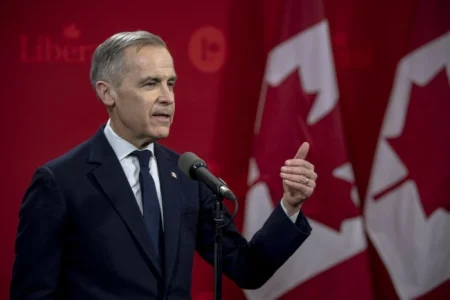ارتفعت أسعار النفط في آخر جلسة لها، وسط آمال بأن تتمكن المجر من استخدام النفط الروسي مع لقاء الرئيس الأمريكي دونالد ترمب برئيس الوزراء المجري فيكتور أوربان في البيت الأبيض، إلا أن الأسعار سجلت خسارة للأسبوع الثاني على التوالي.
وصعدت العقود الآجلة لخام برنت 25 سنتاً، أو 0.39%، إلى 63.63 دولار للبرميل عند التسوية. وبلغ سعر خام غرب تكساس الوسيط الأمريكي 59.75 دولار للبرميل مرتفعاً 32 سنتاً، أو 0.54%.
وسجل الخامان خسارة بنحو 2% هذا الأسبوع، مع زيادة منتجين عالميين رئيسيين الإنتاج.
وقال الخبير النفطي جون كيلدوف: «نتابع اجتماع ترمب مع أوربان لمعرفة ما إذا كان سيسفر عن اتفاق يخفف العقوبات المفروضة على شركتي لوك أويل وروسنفت».
زيادة المخزونات
وتعتمد المجر على الطاقة الروسية منذ بداية الصراع في أوكرانيا عام 2022، ما أثار انتقادات من بعض حلفائها في الاتحاد الأوروبي وحلف شمال الأطلسي.
وقال توني سيكامور، المحلل لدى إحدى الشركات، إن الزيادة المفاجئة في المخزونات الأمريكية بمقدار 5.2 مليون برميل أججت خلال الأسبوع الحالي المخاوف من فائض المعروض.
وذكرت إدارة معلومات الطاقة أخيراً، أن مخزونات النفط الخام الأمريكية ارتفعت بأكثر من المتوقع بسبب ارتفاع الواردات وانخفاض نشاط التكرير، في حين تراجعت مخزونات البنزين ونواتج التقطير.
Oil prices rose in their last session, amid hopes that Hungary could use Russian oil with the meeting between U.S. President Donald Trump and Hungarian Prime Minister Viktor Orbán at the White House, but prices recorded a loss for the second consecutive week.
Brent crude futures rose by 25 cents, or 0.39%, to $63.63 a barrel at settlement. The price of West Texas Intermediate crude rose by 32 cents, or 0.54%, to $59.75 a barrel.
Both crude types recorded a loss of about 2% this week, as major global producers increased production.
Oil expert John Kilduff said, “We are watching Trump’s meeting with Orbán to see if it will result in an agreement that eases the sanctions imposed on Lukoil and Rosneft.”
Increase in Inventories
Hungary has relied on Russian energy since the beginning of the conflict in Ukraine in 2022, which has drawn criticism from some of its allies in the European Union and NATO.
Tony Sycamore, an analyst at one of the firms, stated that the unexpected increase in U.S. inventories by 5.2 million barrels fueled concerns about oversupply during this week.
The Energy Information Administration recently reported that U.S. crude oil inventories rose more than expected due to increased imports and decreased refining activity, while gasoline and distillate inventories fell.
















